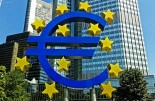MFS: ECB 'recalibrates' PEPP for Q4, December is now key for APP and TLTROs
MFS: ECB 'recalibrates' PEPP for Q4, December is now key for APP and TLTROs

This is a commentary by Annalisa Piazza, Fixed Income Research Analyst at MFS, on yesterday's ECB meeting.
ECB "recalibrates policy": Nothing else has changed. Indeed, the rest of the policy announcement was a carbon copy of what we heard back in July. Forward guidance on both rates and QE was confirmed, along with the re-investment programmes. The slower pace of PEPP had been widely flagged by ECB officials over the past few weeks so the announcement was hardly a surprise.
That said, the market seems to have interpreted the wording on the reduction of PEPP as a sign that the ECB is unwilling to go back to Q1 purchases despite the improved economic outlook, rising inflation and still accommodative financing conditions. Lagarde made clear that today's move was not tapering but a recalibration of PEPP on the basis of the join assessment of financing condition and inflation. Markets welcomed the ECB's recalibration move and intention to keep financing conditions accommodative. Yields moved lower across all the major EGBs curves, with some spread tightening (5-6bp).
Those who thought the ECB would have surprised the market with a hawkish announcement (given some of the hawks within the GC raising their voice) probably need to wait another few months to hear how the ECB is planning to move out of PEPP and 'adjust' the APP programme without shaking the market too much. APP purchases are currently EUR20bn per month, and we suspect that – going forward - they could go up to around EUR 40bn from Q2 next year as the still elevated gross supply across all the major EMU economies will need to be partially absorbed to avoid an unwarranted taper tantrum (that would undermine the transmission of past policy accommodation, growth and inflation).
The December Governing Council meeting will be the next important appointment as the ECB will reassess the role of the ongoing policy tools. PEPP will be re-discussed but – should the ongoing economic scenario be confirmed – the programme will end at its expiry date at the end of March 2022. The future of the APP programme and the TLTROs will also be re-considered and we expect the ECB to 'recalibrate' the pace of purchases and some of its major features on the basis of risks around the post-pandemic economic outlook.
Although GDP is now set to reach pre-pandemic levels by the end of 2021, Lagarde flagged some pockets of weakness that justify the need of some more flexibility in some of the existing tools. Namely, Lagarde suggested the ECB still see risks coming from the large pool of people out of work and around the rising debt of some corporates that could fail to survive in a post-pandemic era should monetary accommodation tighten considerably.
The ECB will need to navigate the next few quarters trying to fine-tune its communication skills (as it often happened over the last few quarters) as considerably tighter financing conditions are not welcome when the output gap will have probably just closed and inflation remains below target in the medium term.








